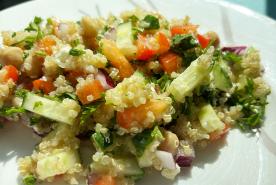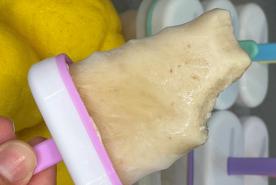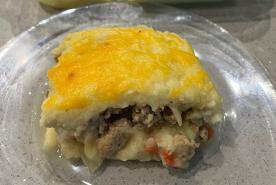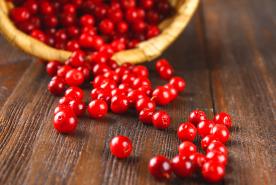Dining out can be a challenge while on dialysis, but there are steps you can take to do it with confidence:
- Plan ahead
- High protein
- Watch salt (sodium), potassium, fluid, and phosphorus
- Smaller portion sizes
- Talk with your dialysis dietitian before you go for more advice
High protein
Since you’re on dialysis, both animal proteins (beef, pork, poultry, fish, and eggs) and plant-based proteins are helpful to maintain muscle mass. It also helps fight infections and keep healthy protein levels (albumin) in your blood. You need albumin in your blood to lower your chances of holding on to extra fluid.
Here are some ways to increase protein:
- Choose the lean cuts of meat like skinless chicken or turkey breasts, pork chops or tenderloin, and beef tenderloin, flank steak, top loin, porterhouse, T-bone, and trimmed veal.
- Order a 3-4 egg (or egg-substitute) option
- Add protein to salads
- Include plant-based protein options like soy burgers and freshly-made non-dairy cheese and milk substitutes (ask if any preservatives have been added, as these may increase the phosphorus and sodium content)
Salt
Salt can raise your blood pressure and also make you thirsty. Most restaurants add a lot of salt to their foods, especially fast-food ones. Here are some tips to help cut back on salt:
- Ask for your food to be made without added salt
- When possible, choose freshly prepared foods
- Avoid salty items like soy sauce, French fries (also high in potassium), and macaroni and cheese. Instead, order vegetables like carrots, green beans, or corn
Phosphorus
Phosphorus is a mineral found in foods like proteins, milk, cheese, fast foods, and packaged foods. Limiting phosphorus can help to protect your bones and keep them strong. Here’s how:
- Choose freshly cooked foods whenever possible and skip the cheese.
- Remember to take your phosphorus binders with you and take them during your meal
Potassium
Potassium is a mineral found in many foods, and it helps your heartbeat regular and your muscles work right. If the kidneys aren’t healthy, you may need to limit foods that can increase blood potassium levels to unsafe levels. Try:
- Avoiding tomato sauces and tomato juice, tropical fruits including bananas, melons, and orange juice, potatoes (white and sweet)
- Ordering garlic and olive oil or white clam sauce with pasta, rice, or noodles
Fluids
It’s important to limit what you drink if your dialysis team has told you to follow fluid restrictions. Consider the amount of fluid you already had during the day and how much you will want to have after your meal. Choose cranberry, apple, or grape juice. One glass of liquid should be okay, but remember to also count the following as part of your daily fluid intake:
- Soup
- Ice-cream
- Gelatin
Smaller portion sizes
Many portion sizes are too large. To avoid overeating, you can:
- Avoid the trap of “super-sized” portions, and order only what you need to enjoy your meal
- Ask for a to-go box when your food arrives and put half of your main dish in the box before you even start to eat. This may help control potassium, phosphorus, salt, and calories, depending on the types of food ordered
If you would like more information, please contact us.
Acknowledgment: Reviewed by the Council on Renal Nutrition (06/2019)
© 2019 National Kidney Foundation. All rights reserved. This material does not constitute medical advice. It is intended for informational purposes only. Please consult a physician for specific treatment recommendations.

















